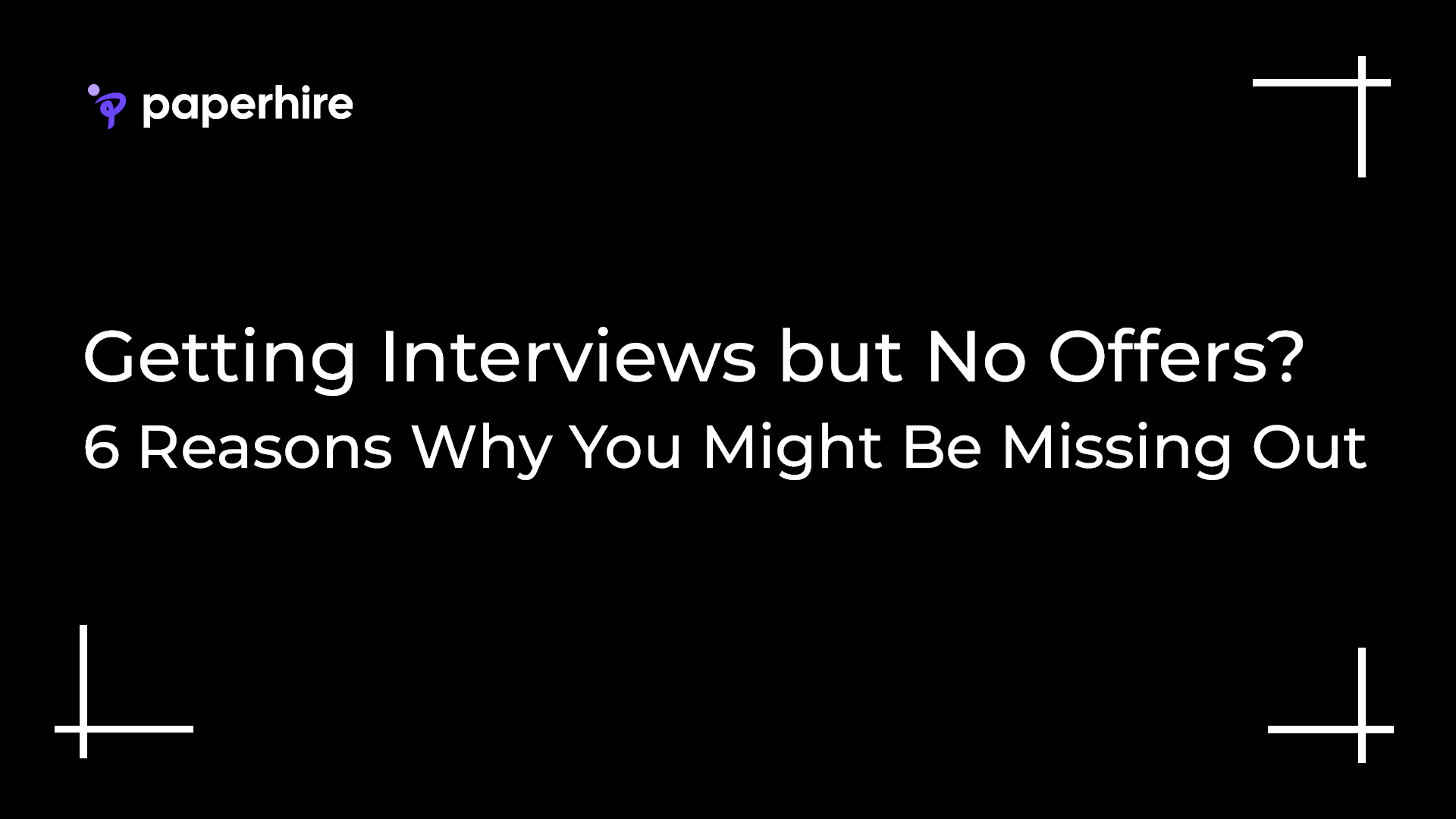Getting Interviews but No Offers? 6 Reasons Why You Might Be Missing Out
If you have been going through multiple interview rounds but still not getting job offers, you are not alone. You're clearly doing something right, your resume is strong enough to land interviews. But when the final decision comes, you hear:
"We've chosen to move forward with another candidate."
It's frustrating, disheartening, and often confusing. So what's going wrong?
In this post, we'll break down the top reasons you're not getting job offers after interviews, and most importantly, how to fix them.
1. You're Not Standing Out in Interviews
Many candidates are qualified. The real challenge? Standing out from others who are just as capable.
Solution: Develop a compelling personal pitch.
Don't just list skills, share your unique value. What do you bring to the table that others don't? Use real-life examples that connect your experience with the company's needs.
2. You’re Not Demonstrating Impact
Hiring managers aren't just looking for someone who can do the job. They want someone who can drive results.
Solution: Frame your answers using the STAR method (Situation, Task, Action, Result), and always include measurable outcomes.
Instead of: "I managed a CRM system and sent weekly newsletters."
Say this: "I optimized our CRM strategy and introduced A/B testing in our email campaigns, which led to a 25% increase in open rates and drove a 15% uplift in monthly demo requests within 60 days."
That answer shows initiative, data-driven thinking, and a clear business outcome.
3. Soft Skills Are Hurting Your Chances
Even if you're technically qualified, soft skills like communication, emotional intelligence, and collaboration can make or break an offer.
Solution: Focus on how you communicate in interviews.
Be confident, respectful, and attentive. Show enthusiasm without overselling. Avoid badmouthing past employers, it signals poor judgment.
4. You're Asking Weak (or No) Questions
Hiring managers take note when you don't ask thoughtful questions—it signals a lack of interest or preparation.
Solution: Prepare 2–3 strategic questions in advance. Ask about team dynamics, success metrics, growth opportunities, or recent company challenges.
Also Read: Notice Period Interviews: 3 Questions Every Employer Will Ask
5. The Role Isn't the Right Fit (Cultural or Strategic)
Sometimes, you did everything right but the company feels you're not the best fit for their culture or long-term vision.
Solution: Don’t take it personally. Instead, ask yourself: "Would I have thrived in this environment anyway?"
Rejection can be redirection to something better aligned with your values and goals.
6. You're Not Learning From Rejections
Without feedback, it's hard to course-correct and many candidates continue making the same interview mistakes unknowingly.
Solution: After each rejection, follow up politely: "Thank you for the opportunity. If possible, I'd appreciate any feedback that could help me grow."
Even one detailed response can unlock huge insights for your next interview.
Conclusion
You're not being overlooked because you're unqualified. You might just need a few key adjustments in how you present your value. Every interview, even the ones that don’t end in an offer, is a live rehearsal for the one that will.
Keep refining. Keep showing up. The right opportunity isn't just about luck. It's about alignment. And that moment could be closer than you think.
